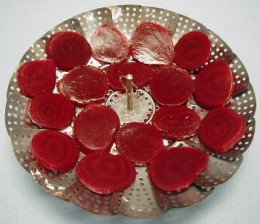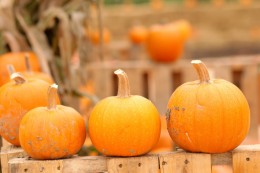
Most vegetables need to be blanched before freezing to inactivate enzymes and protect their quality. This is done by water or steam blanching. Can blanching be done in the microwave?
Using the microwave may produce poor results. Due to uneven heating, the microwave may not completely inactivate enzymes. This results in off flavors, poor texture and loss of color. The microwave does not save time or energy.
For best results, use water or steam blanching. Learn more about freezing at www.rrc.k-state.edu/preservation/freezing.html.
